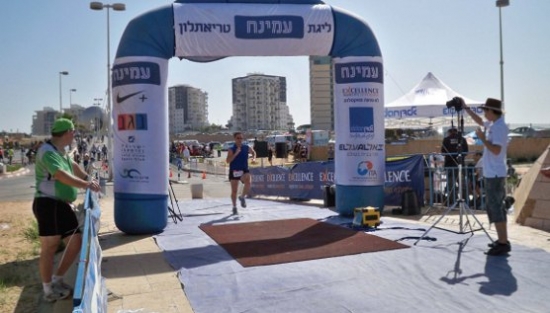
From where my husband and I stand, on a rise overlooking Caesarea’s ancient port, I see sweat dripping off our son’s face, the tightness in his jaw and the pulsing of his legs as he pushes them towards the arch of blue and white balloons ahead of him. It’s a Shabbat morning in September and Yonatan is just about to cross the finish line of his first triathlon.
Later, he and Hadas sit across from us in a booth at the crowded Pancake House in Beit Yanai, before Yesha and I head home for Haifa. He is 33 and she, 32. In a week he’ll be moving out of his dingy Florentine apartment. She’ll be moving out of her trendy Bauhaus. Together they’ll be setting up digs in 2 ½ airy rooms on Hayarkon Street, between the market and the sea.
“The swimming was insane.” Yonatan downs the first of four orders of orange juice, and then waves his hand as though trying to capture his already rapt audience. “Everyone bumping into each other like a bunch of blind whales.”
Yesha’s long fingers halt their march through his white beard. “Did you get hurt?” A shadow of concern darkens his eyes. He knows a thing or two about getting hurt. He's climbed the Himalayas, conquered the Kilimanjaro, and cracked up his ultralight not once, but twice.
“Na,” Yonatan answers and dives into the details of buoys and judges and kayaks.
Yesha listens and asks questions while I nibble at my half of the grilled cheese bagel which Hadas and I share. She’s always reserved, but she’s especially quiet today. Perhaps she’s thinking about the upcoming move. Or maybe she’s distracted by the rowdy family sitting behind her. Or maybe I’m confusing her distractions with mine and she’s simply giving Yonatan center stage.
I like Hadas. She's lovely and smart, and treasures Yonatan as much as he treasures her. Still, plunking their toothbrushes together in one cup is a huge step for both of them. Truth be told, it’s a big step for Yesha and me. Our family as we’ve known it is coming into the final bend. The three of us - always an odd number in this country - are becoming four, challenging all my highfalutin talk about the importance of letting go. Turns out it’s easier said than done.
“Gramps’ bike sure did the job,” Yonatan says as he stabs a pancake the size of a slab of sirloin. “He did so many miles on that thing and it still rides like a champ.”
Yonatan’s grandfather is my 89 year-old father. Last summer he drove 8000 miles from Florida to Oregon and back. He did it on his own in his beat-up Corvette convertible.
In our weekly phone call after his return to Ft. Lauderdale, I told him that his grandson had found ‘the one’.
“It’s about time,” Dad snapped, emphasizing time as though he owned it. From the sound of ice clinking on glass, I knew he was sitting on the terrace of his apartment nursing his evening shot of bourbon and gazing at the boats docked at the canal below. That’s where he used to live - on a boat. And he used to drive a Harley. Before that, he crisscrossed America in his RV*, and bicycled through Europe, New Zealand and Israel.
He’s pedaled and driven highways and roads, sailed rivers and seas, traveled over and under bridges, through tunnels and around mountains. He’s survived rain, ice, wind, breakdowns and accidents, relishing every one of his mishaps as long as he could keep moving and live to tell the story.
"Life is activity," my father has always said. "Doing: motion." And according to him, he’s the only one who knows how to live… except for his grandson.
He romanticized his eldest grandchild’s army service, glossing over 1000 long days and nights with enviable ease. Later, he traced Yonatan’s travels, saying time and again that Israel was just too small a place for his worldly descendant. And he constantly pumped him for the racy details of bachelor life in Tel Aviv, relished them as though Yonatan was carrying on a proud family tradition. My father enjoyed every minute of the very things that turned my hair white.
Yonatan cleans off the last of the juice, and, as though his reserves of strength are as empty as the glass, leans into Hadas, pressing on her slender frame. Her black hair, shiny and pencil-straight, spills over his bulky shoulder.
“Isn’t it great - being around people in love?” The longing in my father's voice was palpable. This was two months ago, and I had been going on about Yonatan and Hadas, doing my best to divert his attention from a bout of pneumonia that had left him grumpy and shaken.
“It isn’t people,” I retorted, annoyance trumping any sympathy I might have had. “We’re talking about my son, not some stranger.”
“Don’t be so damned touchy.” He coughed, and then went into a spasm of groaning about doctors and bed rest. Before hanging up, and without any warning, he said, “Speak to you soon, sweetie.”
It was something he had called Mom during their early, good years my sister - sometimes and his girlfriends since my mother’s death - always. But me? I hadn’t been ‘sweetie’ for over 50 years. Maybe 60. Enough time to forget.
“The run was a bitch,” Yonatan groans. “It took me a kilometer to get into the groove.”
“And it was hot by then,” Yesha adds.
“And it was hot,” Yonatan echoes. “Even this 200 shekel sweat-repellent shirt didn’t do the job.”
“But you look so stylish,” Hadas says, yanking at the damp, smelly fabric and drawing a big laugh from all of us.
It’s good, this moment of joy. If only it could last. Dad called yesterday. He had just returned from the ER, a cast on his right wrist - he’d fallen at home but couldn’t remember how.
“Part of my bone is just gone. Disappeared. Disintegrated into dust.” His voice wavered with a kind of frailty I’d never heard before. “Nothing worse than getting old.”
And then, suddenly, he rallied. “All those spills on the Harley and the bike - remember the time I ended up sprawled on an exit ramp in Virginia? Nothing broken, fractured.”
Not a word about the police report. Not a whisper about insurance hassles. Not even the tiniest mention of my brother-in-law’s midnight run from New Jersey to get him out of the trouble he’d gotten himself into.
"Mom?" Yonatan's voice brings me back to the present. The waiter is standing next to our table. "How about some coffee?"
"Love it." I move closer to Yesha. If I could just keep moments like this, freeze time, stay healthy, not grow old - pipe dreams, I know.
"The next race is in six weeks," Yonatan is saying, then goes on to complain about 5 am workouts, his demanding trainer, the cost and the effort.
"So what in all this did you actually enjoy?" I ask, raising a cup of steaming latte.
"I asked myself the same question," he says. "More than once. Getting knocked around in the water. Seeing bikers zip by me though I was pedaling like mad. Running, my feet like rocks and my lungs about to burst. But I just kept putting one foot ahead of the other. And then there it was - the finish line, dead ahead. So I gave it that one last push… just to make it across." He smiles at me. "Yeah, the race is hard. But the last hundred yards are worth the effort."
In the parking lot, Hadas gently hugs Yesha and me. Yonatan does the same. “You’ll visit us as soon as the apartment is set up,” he says.
“Tell us if you need anything.” I stroke my son’s cheek one last time before they turn south and we, north.
“It’s kind of nice,” I say once we're on the coast road. “The four of us.”
Yesha smiles, and then reaches for the cruise control. The car lurches before easing into an even clip. We whiz by Michmoret, Caesarea and Or Yehuda.
"It's like he's found the missing piece," I say.
"It's all good." He reaches over and pats my knee. "Very promising."
"Promising," I echo, and look at my watch. It's 8 am in Florida. Dad’s up. He’s probably standing at the kitchen counter, head slightly bent, eyes intent as he tries to make his morning omelet while maneuvering around in his cast. Egg will spill onto the counter; bits of shell will fall into the bowl. He'll curse as he muddles his way through an easy task made challenging, complain as he watches his perfectly folded pleasure morph into a scrambled mess. After breakfast he’ll take a slow walk, maybe sit on the bench facing the canal. Maybe he’ll meet a friend. Maybe he won’t. He doesn’t have many left.
Jisr az-Zarka, Zichron - and suddenly I see the university tower. It pokes out of the mountain, a misplaced lighthouse guiding us into port.
"Let's hurry," I say. "I want to call Dad."
Yesha steps on the gas. The cruise control releases its grip and lets us sail our way home.
*RV = Recreational Vehicle
 ESRA College Netanya is reborn
ESRA College Netanya is reborn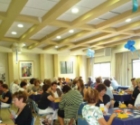 ESRA HERZLIYA ACTIVITIES
ESRA HERZLIYA ACTIVITIES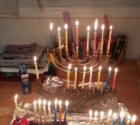 Chanukah Celebration at ESRA Rishon LeZion
Chanukah Celebration at ESRA Rishon LeZion 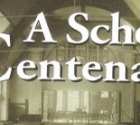 A School Centenary
A School Centenary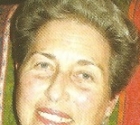 Train Trips
Train Trips-1451900978.jpg) The Agunah- The Deserted Wife
The Agunah- The Deserted Wife-1330805303.jpg) Laurie Bisberg-Primes
Laurie Bisberg-Primes